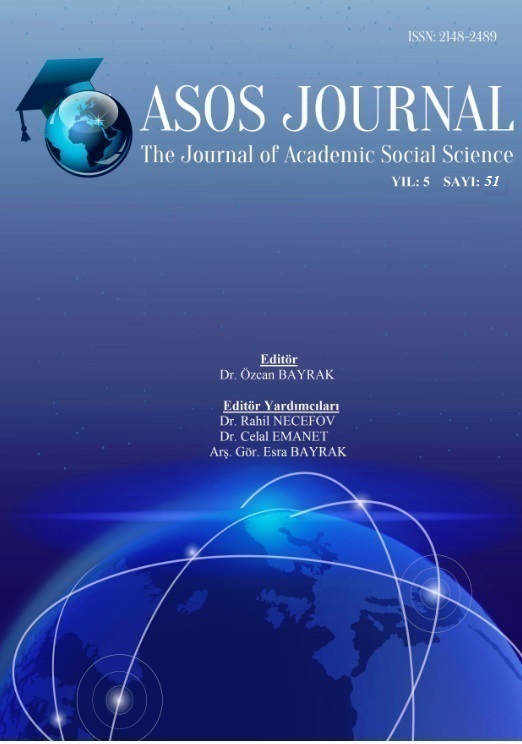OSMANLI TİMAR SİSTEMİ VE UYGULAMADA ORTAYA ÇIKAN UYUŞMAZLIKLAR (İSTANBUL AHKÂM DEFTERLERİ’ NDE YER ALAN KAYITLAR DOĞRULTUSUNDA )
Author :
Abstract
Osmanlı ekonomisi bir tarım ekonomisidir ve Osmanlı tarımının temelini timar sistemi oluşturmaktadır. Timar sisteminde yaşanan sorunları Ahkâm Defterleri’ ne yansıyan hükümler üzerinden görmek mümkündür. Osmanlı Devleti’nde 1742 yılından sonra, Divân-ı Hümayun’ da, halkın şikayetlerinin görüşülmesinden sonra alınan kararların birer suretinin farklı bölgelere ait defterlere kaydedilmesiyle Ahkâm Defterleri meydana gelmiştir. Bu çalışmada İstanbul Ahkâm Defterleri' nde yer alan kayıtlara göre, timar sisteminin uygulanışı, sipahi-reaya ilişkileri, timar topraklarında vergiler ve diğer sorunlar ortaya konmaya çalışılmaktadır. Bu amaçla tarım ile ilgili 6 ve 7 numaralı İstanbul Ahkâm Defterleri’ nde yer alan 1761-1766 dönemine ait 356 kayıt incelenmiştir. Her bir kayıt içerdiği uyuşmazlık konusuna göre sınıflandırılıp elde edilen istatistiksel sonuçlar değerlendirilmiştir. Bu veriler, İstanbul’ da 1761-1766 döneminde timar sisteminde yaşanan sorunların büyük çoğunluğunu “Miri, tımar ve mülk toprak ihtilafları” (%43) ve “Vergiler”(%27) “başlığı altında toplanan konuların oluşturduğunu göstermektedir.
Keywords
Abstract
The Ottoman State was an agrarian economy and agriculture was based on timar (manorial) system. It is possible to see the emerging disagreements in the timar system through the provisions reflected in Ahkam Registers. After 1742, Ahkam Registers were formed by compiling copies of decisions made about people’s complaints at Ottoman Divan in registers belonging to different regions. This study aims to evaluate the implementation of the timar system, relations between the sipahi and reaya (peasantry) and taxation problems according to the Istanbul Ahkam Registers. For this purpose 356 provisions related to agriculture which are located in numbered 6 and 7 of Istanbul Ahkam Books during the period from 1761 to 1766 were investigated. Each record of a book classified according to the threads of conflict and obtained statistical results evaluated. The results shows that the most problems of the agricultural system of Istanbul in 1761-1766 period were about “demesne (miri), manorial (timar) and property (mülk) land disputes” (43%) and “taxes” (27%).





